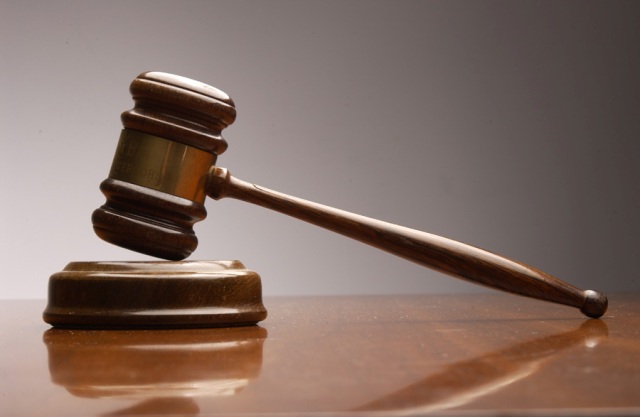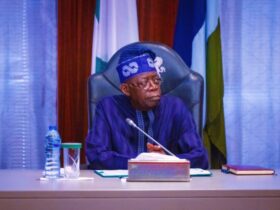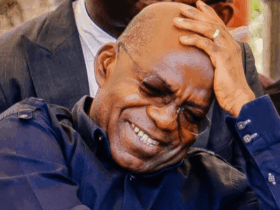From Scandal to Triumph: The Untold Saga of Nigeria’s Epic Showdown with P&ID

The UK Supreme Court has ruled that Process and Industrial Developments (P&ID), an offshore company, is liable to reimburse up to £44 million in legal fees owed to Nigeria.
On October 22, 2025, a unanimous bench of five justices, led by Lord Reed, President of the Supreme Court, dismissed P&ID’s appeal and confirmed that the company must pay these legal costs in British pounds rather than in Nigerian naira.
This verdict upheld earlier rulings from the UK Commercial Court and the Court of Appeal, which had established that Nigeria’s legal expenses-incurred and settled in sterling-should be reimbursed in the same currency.
Origins of the Conflict
In 2010, Nigeria entered into a 20-year Gas Supply and Processing Agreement (GSPA) with P&ID. Under this contract, Nigeria was to supply wet natural gas, while P&ID was responsible for processing it and returning 85% as lean gas suitable for electricity generation.
Additionally, P&ID committed to constructing at least two state-of-the-art processing plants and associated infrastructure-an obligation that was never fulfilled.
Principal Figures and Corruption Allegations
The GSPA was negotiated under the oversight of a former Petroleum Minister and his legal team. Subsequent investigations and media exposés implicated several senior officials, both deceased and living, in bribery related to the agreement.
Notable individuals named include the late Rilwanu Lukman, former Petroleum Minister; Taofiq Tijani, ex-NNPC official; the late Grace Taiga, former Director of Legal Services at the Ministry; and Theophilus Danjuma, a prominent Nigerian figure.
Grace Taiga, who served from 2004 to 2010, was instrumental in negotiating the GSPA. Court documents and press investigations suggest she accepted bribes from P&ID in exchange for facilitating the contract.
Bank statements seized by Nigeria’s Economic and Financial Crimes Commission (EFCC) revealed transfers exceeding $20,000 to her offshore accounts from entities linked to P&ID in 2010. She is also accused of circumventing proper legal protocols in advising on the GSPA.
Taiga was arrested in 2019 on charges of money laundering and fraud but was released on bail. She died in September 2023 before her trial concluded and was never convicted.
Chronology of Legal Proceedings
In 2012, P&ID alleged that Nigeria breached the contract and sought damages estimated at $6 billion. The Nigerian government countered, asserting that P&ID had made minimal efforts or investments to fulfill its contractual duties.
The government stated, “P&ID claims a $40 million investment but has failed to provide evidence. It did not engage contractors or acquire land, demonstrating no genuine intent to perform the contract.”
Officials described the GSPA as a fraudulent scheme, accusing the parties involved of exploiting sham commercial arrangements to divert resources from the Nigerian people.
In 2019, a London arbitration tribunal awarded P&ID $9.6 billion in damages, which later increased to over $11 billion with interest. This ruling threatened Nigeria’s foreign assets and reserves, prompting urgent government action.
Fearing asset seizures, then-Central Bank Governor Godwin Emefiele sought President Muhammadu Buhari‘s approval to finance and coordinate Nigeria’s legal defense. Buhari authorized the Central Bank to work with Attorney General Abubakar Malami to appeal the decision.
After several leading UK law firms declined due to missed appeal deadlines, Mishcon de Reya LLP took on the case, invoking Section 68 of the UK Arbitration Act, which permits challenges to arbitral awards obtained by fraud.
The litigation began in 2020 and culminated in a landmark 2023 ruling by the UK Commercial Court, which found that P&ID had secured the contract through bribery and deceit, overturning the prior award and saving Nigeria billions.
Justice Robin Knowles concluded that P&ID’s agents bribed Nigerian officials and unlawfully retained confidential government documents to support their claims. He also criticized two London-based lawyers, Trevor Burke KC and Seamus Andrews, for improperly using Nigeria’s internal documents, noting their potential personal gains of £850 million and £3 billion respectively if P&ID had succeeded.
Both lawyers faced disciplinary investigations by the Bar Standards Board and the Solicitors Regulation Authority.
Dispute Over Legal Costs and Currency of Reimbursement
Following the 2023 victory, Nigeria incurred legal expenses totaling £44.2 million, paid through 116 invoices from November 2019 to November 2024. P&ID challenged the currency of payment, arguing that costs should be paid in naira to prevent Nigeria from benefiting from favorable exchange rates after the naira’s sharp depreciation following its 2023 float.
The Supreme Court, in a joint judgment by Lord Hodge and Lady Simler, supported by Lords Reed, Stephens, and Richards, clarified that legal costs are statutory indemnities for reasonable litigation expenses, not compensatory damages.
Since Nigeria’s liabilities and payments were made in sterling, the court ruled that costs must be awarded in pounds. The justices emphasized that costs differ fundamentally from damages and are discretionary, intended to fairly cover legal expenses rather than compensate for losses.
They cautioned that accepting P&ID’s argument would lead to unnecessary, costly disputes over how litigants finance their legal fees. While no statute mandates costs awards be in sterling, the court reaffirmed that they should generally correspond to the currency in which legal services were billed and paid.
Consequences and Conclusion
Insiders revealed that the ruling had a profound impact on Nigeria, with the former Central Bank governor firmly opposing payment of the fraudulent claim, choosing to defend the nation’s interests rather than yield to corrupt demands.
The Supreme Court’s decision now definitively confirms Nigeria’s entitlement to recover its full legal costs in pounds sterling, bringing a decade-long legal battle to a close and protecting the country from an unjust financial burden.








Leave a Reply